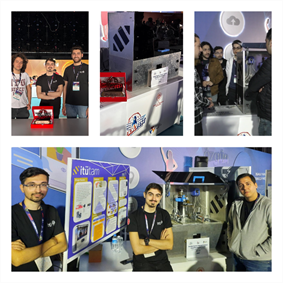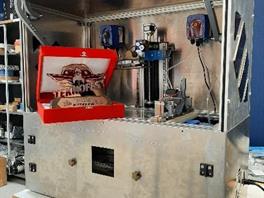ENVIRONMENTALLY COMPATIBLE SUSTAINABLE ADVANCED VEHICLE TECHNOLOGIES PLATFORM
Kick-off meetings of the "Environmentally Compatible Sustainable Advanced Vehicle Technologies" platform, which was decided to be supported within the scope of TÜBİTAK 1004 High Technology Platforms program, were held. Our faculty member Prof. Dr. Özgen Akalın is the research program manager, and under the leadership of Istanbul Technical University-Advanced Vehicle Technologies Application and Research Center (ILATAM), together with OYAK Renault, TÜBİTAK RUTE, TEMSA Skoda and Eskişehir Technical University, the focus will be on critical technologies required for the development of advanced vehicles.
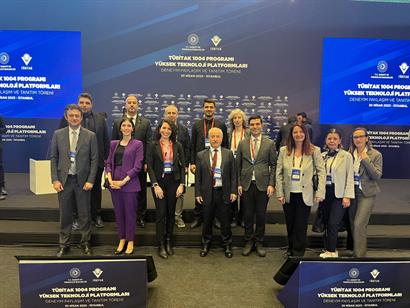
Today, with the increasing population and living standards in developing countries, carbon emissions have become a threat to the climate and human health. The European Green Deal aims to make the EU climate-neutral by 2050. To achieve these goals, the global automotive industry is going through a major transformation. In this program, it is aimed to create a high-tech platform that develops critical vehicle technologies that can be transferred to the automotive industry, taking into account the transformation of the global automotive industry and national resources.
In this platform, 14 interconnected research and development projects, which will last 48 months, have been designed in the focus areas of “Electric Propulsion, Control and Management Systems”, “Vehicle Systems Design”, “Energy Storage and Management Systems”, "Lightening Technologies" and "Clean Energy Power and Fuel Systems". In addition, the effects of advanced vehicle technologies on the city and society will be examined in a social impact project. With the completion of these projects, it is expected that important scientific and technological developments will be achieved at a level that can be transferred to the private sector.
 Developing an Autonomous Delivery System with a Hybrid Unmanned Aerial Vehicle
Project Manager:
Developing an Autonomous Delivery System with a Hybrid Unmanned Aerial Vehicle
Project Manager: Prof. Dr. Erdinç Altug
Project Supporting Organization: TUBITAK (Project no : 120E182 )
Abstract: Within the scope of the project, an electric aircraft prototype with a weight of approximately 25 kg and a wingspan of 3.7 meters, capable of both vertical take-off and landing and conventional take-off and landing as a fixed-wing aircraft (hybrid) was manufactured.
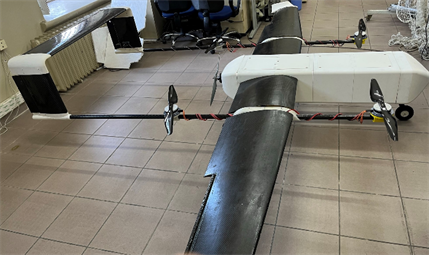 Developing a Lightweight New Thermoplastic Hybrid Nanocomposite Based Battery Box with High Energy Efficiency and Thermal Conductivity
Project Manager:
Developing a Lightweight New Thermoplastic Hybrid Nanocomposite Based Battery Box with High Energy Efficiency and Thermal Conductivity
Project Manager: Asst. Prof. Dr. Alaeddin Burak IREZ
Organization Supporting the Project: TÜBİTAK 1004
Design of an Autonomous Cleaning Robot to Work in Large Areas such as Shopping Malls, Airports or Warehouses
Project Manager: Prof. Dr. Erdinç Altug
Students: Efecan BECER, Onur ULUSOY , Kemal TURAN
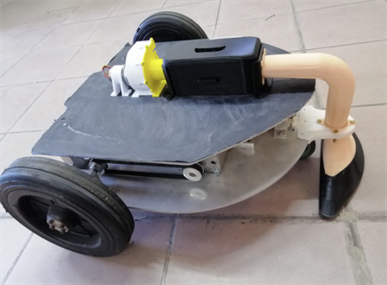 ITU Facilis Automobile Team
ITU Facilis Automobile Team
Team Introduction: Facilis Automobile Team is a team established within Istanbul Technical University in 2011 to participate in the Shell Eco - marathon competition. So far, it has successfully manufactured 5 different vehicles, three of which are electric and two of which are gasoline. Team will participate in the competition which will be held next year, with the new Macaw 3 vehicle.
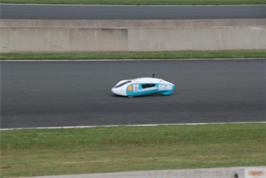
Macaw 3 Chassis-Shell Development: Shell studies for the Macaw 3 car, which aims to provide stronger, lighter and more working space, have been started. The styrofoam foam model of the shell coverings, whose computer-aided design was completed within the team, was manufactured in cooperation with the private sector.
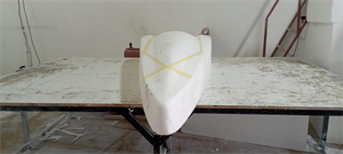
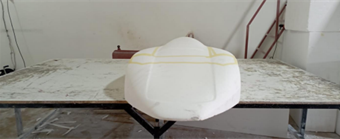
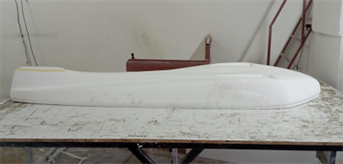 High Efficiency Engine Development with Domestic Design:
High Efficiency Engine Development with Domestic Design: Production of high-efficiency engine parts, which were designed entirely with team facilities and successfully completed simulation tests, was started.
Shell Eco-marathon 2023 participation: Our team participated in the Europe-Africa competition held at the "Circuit Paul Armagnac" track in France this year. Team was entitled to receive a degree by successfully completing the technical audit in which 130 requirements were inspected under 12 titles. We improved our rank by 24.7% in the same competition by reaching 386.6 with one liter of gasoline.
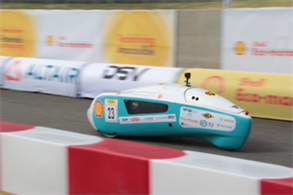
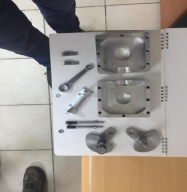
High Efficiency Mixing Using a Longitudinal Electrode in a Microstirrer
Project Manager: Prof. Dr. Levent Trabzon
Project Supporting Organization: TUBITAK (Project No: 123M263)
Use of Beamforming Methods in Damage Determination Problems in Structural Mechanics
Project Manager: Asst. Prof. Dr. Ugurcan Eroglu
Organization Supporting the Project: ITU BAP Coordination Unit
Abstract: In the project, a research will be conducted on the use of beamforming methods for damage detection in beam type structures using modal curvatures and modal curvature changes. The compelling scenarios such as the presence of a sensor in the vicinity of the damage where the modal curvatures are high or the changes are high, as well as a damage between two sensors, will be analyzed numerically and analytically. The obtained information will be evaluated with experimental data. Studies carried out within the scope of the project will be presented at the international EMI IC 2023 International Conference to be held at Palermo University by the Engineering Mechanics Institute and the American Society of Civil Engineers.
TÜBİTAK 2219 OVERSEAS POST-DOC RESEARCH SCHOLARSHIP
Dr. Raşid Ahmed YILDIZ was approved by TÜBİTAK BİDEB to be supported for 12 months for his research at the University of Southern Denmark.
Modeling of Failure Mechanisms of Metallic Parts Manufactured by Additive Manufacturing
The increasing demand for additive manufactured (AM) metal parts in the industry raises questions about the mechanisms of failure in these materials. Researchers have introduced various criteria and failure approaches to predict damage to metals. However, according to the literature search carried out by the candidate, the mechanisms of damage formation in AM metal parts were investigated only experimentally. On the other hand, AM metal parts differ from conventionally manufactured metals due to their porous structure. For these reasons, the research proposal aims to investigate the failure mechanisms in AM metal parts and to model them numerically.
Metal-Ceramic Additive Manufacturing Printer
Project Coordinator: Assoc. Prof. Dr. Emrecan Soylemez
Organization Supporting the Project: ITU BAP, TUBITAK, TEKNOFEST
Abstract: A printer capable of printing both metal and ceramic materials together has been developed in the project. The printer is based on the photopolymerization method, which involves curing and hardening of the resin under the UV light exposure. In the system developed, the printing is done by adding materials, whether it's metal, ceramic, or a material that can be converted into powder form, into the resin. After the printing is completed, the resin inside the parts is burned in oven and the final strength is achieved by sintering.
The project was carried out with the support of Istanbul Technical University (ITU) Research Fund Unit (BAP), TEKNOFEST, and TUBITAK. With the developed printer, participation was made in the TEKNOFEST Technology Competition for the benefit of humanity in the university and higher education category. The project received the Best Presentation Award.
